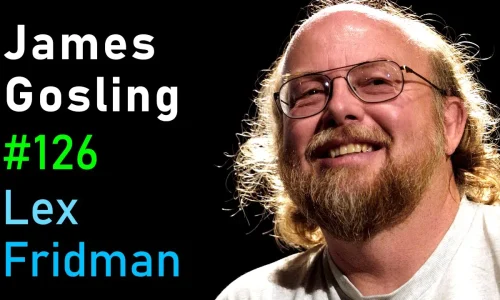See all Lex Fridman transcripts on Youtube

James Gosling: Java, JVM, Emacs, and the Early Days of Computing | Lex Fridman Podcast #126
1 hours 51 minutes
🇬🇧 English

Omnivision Solutions Ltd
- Getting Started
- Create Transcript
- Pricing
- FAQs
- Recent Transcriptions
- Roadmap